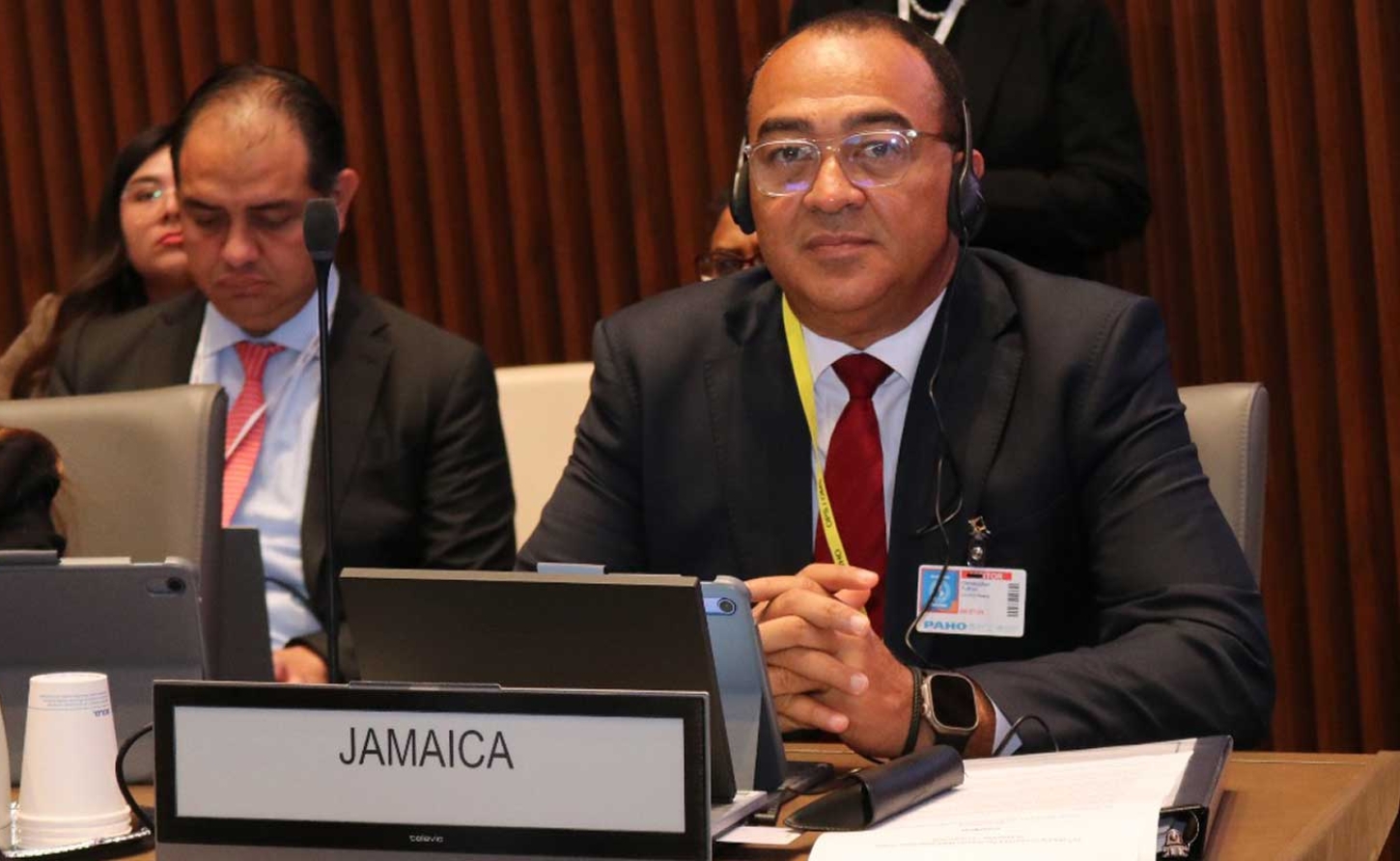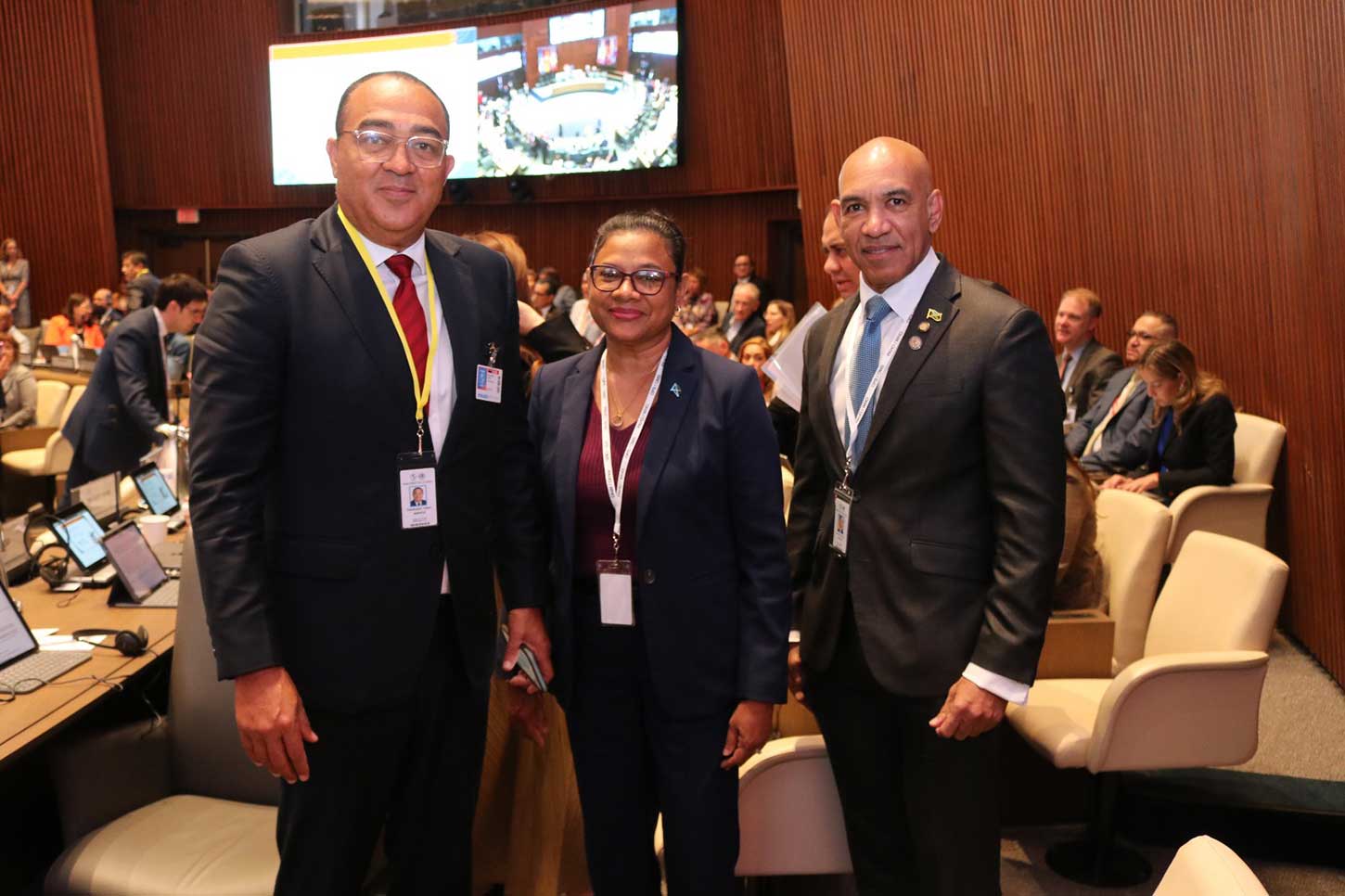DIASPORA | Jamaica Ranks Second in Caribbean for Noncommunicable Disease Prevention, Minister Reports to PAHO

WASHINGTON D.C., October 3, 2025 — Jamaica has achieved significant progress in combating noncommunicable diseases (NCDs), ranking 14th overall in the Americas and second in the Caribbean according to the World Health Organization's NCD Accountability Framework, Health and Wellness Minister Dr. Christopher Tufton announced at the 62nd Directing Council of the Pan American Health Organization.
Speaking before health ministers from across the Americas, Dr. Tufton outlined Jamaica's comprehensive approach to tackling diseases that account for more than 75 percent of deaths in the Caribbean region.
Understanding the Caribbean NCD Crisis
Noncommunicable diseases—chronic conditions including cardiovascular disease, cancer, diabetes, and chronic respiratory diseases—represent the region's most pressing public health challenge. In the Caribbean, these silent killers are responsible for approximately 75 percent of all deaths, with cardiovascular diseases, cancer, and diabetes accounting for the highest proportion. Forty percent of these deaths occur prematurely in people under age 70 and are potentially preventable.
The economic ramifications are profound, with NCDs estimated to cost Caribbean nations between 1.36 percent and 8 percent of GDP, excluding indirect costs from lost productivity. Unlike infectious diseases that dominated Caribbean health systems decades ago, NCDs develop slowly from risk factors including tobacco use, harmful alcohol consumption, unhealthy diets, and physical inactivity.
 Minister of Health and Wellness, Dr. Christopher Tufton, Chief Medical officer of Health Dr. Jacquiline Bisasor- Mckenzie and Jamaica’s Ambassador to the United States His Excellency Major General (Rtd) Antony Anderson share a light moment the 62nd Directing Council of the Pan American Health Organization (PAHO) at its headquarters in Washington DC Monday September 29.2025. Photo Derrick Scott.Jamaica's Legislative Victories
Minister of Health and Wellness, Dr. Christopher Tufton, Chief Medical officer of Health Dr. Jacquiline Bisasor- Mckenzie and Jamaica’s Ambassador to the United States His Excellency Major General (Rtd) Antony Anderson share a light moment the 62nd Directing Council of the Pan American Health Organization (PAHO) at its headquarters in Washington DC Monday September 29.2025. Photo Derrick Scott.Jamaica's Legislative Victories

Jamaica has achieved eight WHO NCD targets in full, with several others partially met. Key legislative accomplishments include developing and implementing laws promoting smoke-free environments and restrictions on alcohol availability.
"The Tobacco Control Bill 2020, currently tabled in parliament, will bring Jamaica into full compliance with the WHO Framework Convention on Tobacco Control once promulgated," Dr. Tufton told delegates.
The government is working closely with relevant ministries, civil society organizations, and stakeholders to advance policies on food reformulation, front-of-pack labelling, and restrictions on alcohol advertising—measures shown to reduce NCD risk factors across populations.
Innovative Community Programs
Despite policy successes, Jamaica faces ongoing challenges with increasing rates of obesity and physical inactivity. In response, the government has implemented the Jamaica Moves Programme, which promotes healthy diets and physical activity in schools, workplaces, and communities nationwide.
"We continue to implement innovative interventions and public education campaigns," Dr. Tufton stated, emphasizing the programme's multi-sectoral approach.
Strengthening Healthcare Infrastructure
Jamaica's health system response has seen improvements through Primary Healthcare Reform, which will expand the number of primary care sites offering routine NCD care and implement specialist clinics in primary care settings.
The country has updated clinical guidelines for NCD management and implemented screening protocols for priority diseases. Access to diagnosis and treatment of priority cancers has expanded significantly with the introduction of specialist services in urology, oncology, and gastroenterology in additional hospitals.
Surveillance systems are being strengthened through the upcoming Jamaica Health and Lifestyle Survey IV, updating and expansion of the National Cancer Registry, and evaluation of the National NCD Surveillance system by PAHO.
Regional Leadership and Constructive Engagement
Jamaica commended PAHO for the new Plan of Action on NCD prevention while offering constructive feedback on implementation challenges.
Dr. Tufton noted that indicator 3.3.1, which requires detailed data on social determinants, presents practical challenges. "Implementing during the timeline with current resources may not be feasible, especially with limited human resources," he explained, requesting reconsideration to focus on the number of countries with standardized systems for recording primary health care service user data for the four main NCDs.
Despite this concern, Jamaica endorsed the new Plan of Action, reflecting the country's commitment to regional collaboration in addressing the NCD epidemic.
Looking Ahead
Jamaica's achievements demonstrate that middle-income Caribbean nations can make substantial progress against NCDs through comprehensive policy frameworks, legislative action, and community-based interventions. However, Dr. Tufton's remarks acknowledged the ongoing nature of the challenge, particularly regarding emerging risk factors and the need for sustained investment in prevention and care systems.
As Caribbean nations confront the highest NCD mortality rates in the Americas, Jamaica's experience offers a model for combining policy innovation, healthcare system strengthening, and community engagement—while maintaining realistic expectations about resource constraints and implementation timelines.
The statement was delivered at PAHO headquarters in Washington D.C., where health ministers gathered to address pressing regional health challenges and chart coordinated responses to shared public health threats.
-30-
